Max Frisch at ETH Zurich
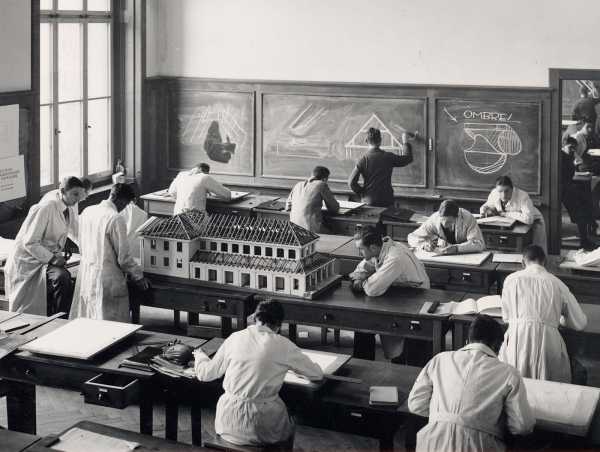 Frisch's architecture diploma from 1940. © Max Frisch Archive, Zurich
Frisch's architecture diploma from 1940. © Max Frisch Archive, Zurich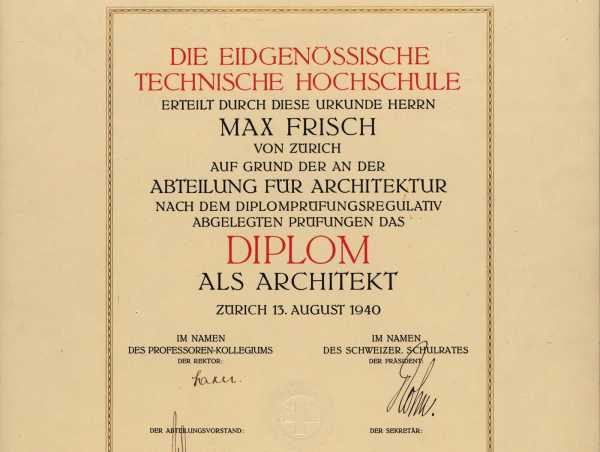 Sketch for a nude study from the drawing classes at ETH Zurich
Sketch for a nude study from the drawing classes at ETH Zurich
© Max Frisch Archive, Zurich
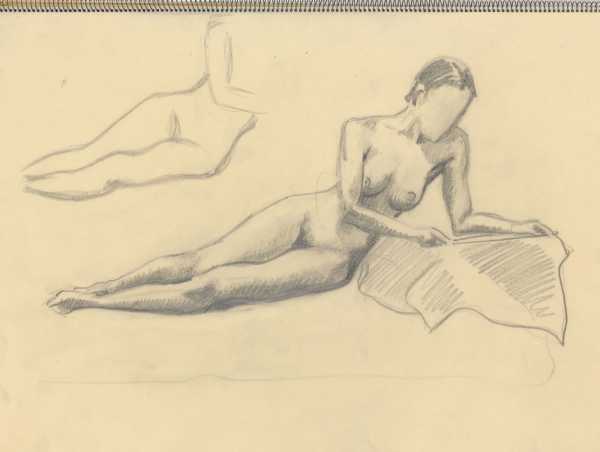 Max Frisch's most famous building: the Letzigraben outdoor pool in Zurich. © Max Frisch Archive, Zurich
Max Frisch's most famous building: the Letzigraben outdoor pool in Zurich. © Max Frisch Archive, Zurich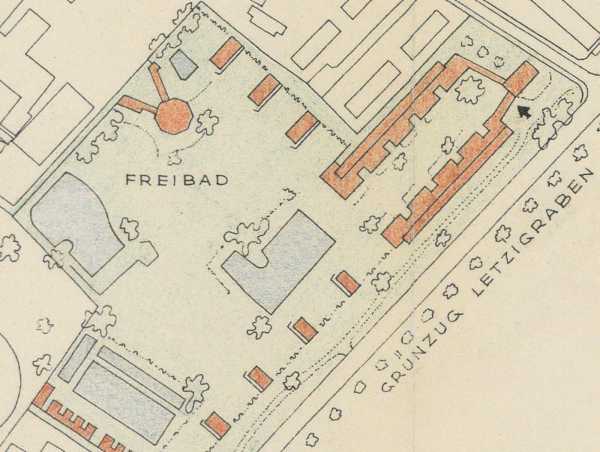 Reception to celebrate Max Frisch's 70
th birthday. Frisch talking to then President of ETH Zurich Heinrich Ursprung, 1981
Reception to celebrate Max Frisch's 70
th birthday. Frisch talking to then President of ETH Zurich Heinrich Ursprung, 1981
© Max Frisch Archive, Zurich
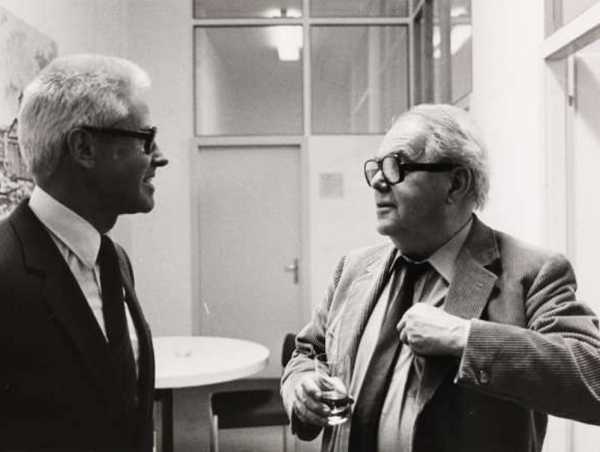 The Max Frisch Archive in 1994
The Max Frisch Archive in 1994
© Barbara Davatz/Max Frisch Archive, Zurich
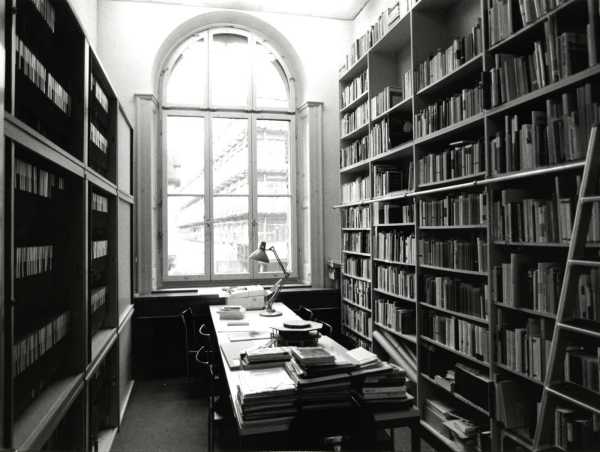
Max Frisch enjoyed a close relationship with ETH Zurich. After breaking off his degree in German studies, he started studying here for the second time, graduating as an architect in 1940. The professors William Dunkel and Otto Rudolf Salvisberg, who focused on the artistic side of architecture, and the artist Otto Baumberger, who taught the students drawing, had a profound influence on him. During this period, Frisch also attended lectures by psychoanalyst C. G. Jung at ETH Zurich. In "Tagebuch 1946–1949", he recalls this second spell as a student, which he owed to his wealthy friend Werner Coninx:
"Initially absolutely delighted to be able to sit down on a weekday morning, without having to worry about the monthly income for mother and son, and conduct higher mathematics instead, later on I did have a silent need, a sense of having idled away my youth, fear that I would never achieve a goal. […] [W]hat particularly inspired me about this profession was the other, the non-paper, the tangible, the craftsmanship, the material character, and only the actual building, especially the realisation of one’s own designs, could reveal whether this second attempt was also a mistake."
Of the architectural designs that Frisch realised, the Letzigraben outdoor pool is the best-known. With the sale of his own architecture practice in 1955, however, Frisch turned his back on the practical side of architecture to concentrate fully on writing. No sooner had he recorded his initial literary successes than German scholars began to study his work – including at ETH Zurich: Karl Schmid, Rector of the university from 1953 to 1957, already wrote an "Essay about Max Frisch" in 1946.
The relationship between humans and technology is a theme which interested Frisch throughout his lifetime. For instance, the protagonist in his famous novel '"Homo Faber" was an assistant at ETH Zurich, where he wrote a dissertation "on the significance of the so-called Maxwell's demon". Walter Faber has little time for aesthetes and artists, "who think themselves loftier or more profound beings simply because they don't know what electricity is."
In the early 1980s, Frisch's own archives moved to the former drafting rooms, which he had used as a young student.